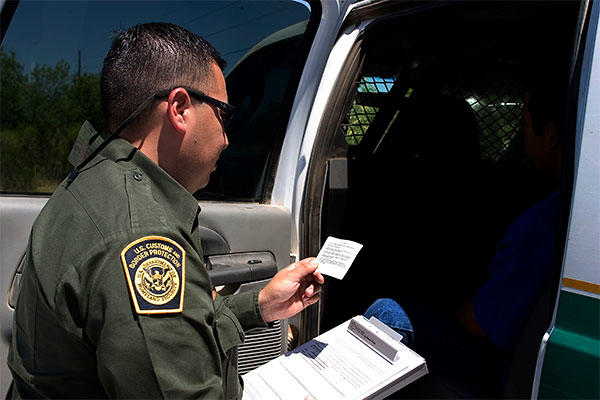Fluency in Polish or Vietnamese might not seem like an obvious asset for a career in law enforcement, but the ever-burgeoning diversity of the United States means demand is growing for foreign-language skills in the field.
"It's definitely an asset," said John Terrill, communications director of the National Association of Police Organizations. "The United States is a melting pot, pure and simple."
Where to Use Your Foreign-Language Skills
According to law enforcement experts, foreign-language skills play a role in a broad variety of situations, including:
- Assisting crime victims
- Interviewing witnesses
- Fielding emergency calls
- Listening to wiretaps
- Conducting community outreach programs
Major metropolitan areas have the greatest demand for law enforcement personnel with foreign-language skills. Rural areas may also have targeted needs because of concentrated communities of recent immigrants.
But while foreign-language skills often come in handy on the job, they are rarely the key to getting hired. Law enforcement positions typically require various psychological, physical and intellectual assessments, with foreign-language skills just one factor among many. "In some instances, I'm sure it could be a tiebreaker," Terrill said.
Law enforcement organizations say they do not have national statistics on the languages most in demand but note Spanish is clearly the leader. The need for specific languages varies greatly by region. For instance, the St. Paul Police Department in Minnesota has recruited speakers of Hmong, the language spoken by an Asian ethnic group with a considerable presence in the city.
"Language skills are very important and it always helps to be bilingual, but it varies from community to community," said Wendy Balazik of the International Association of Chiefs of Police. "Of course, if someone is applying for a border town in Texas, they want to speak Spanish. In other parts of the country, other language skills are important."
The New York City Police Department recently cited more than 80 of its members for their skills in 35 "critical languages," including Dutch, Hindi, Indonesian, Turkish and Yiddish. "One of the remarkable things about the police department is the depth of foreign-language talent," Police Commissioner Raymond W. Kelly said in a press release. "It serves us well in crimefighting, community relations and in our counterterrorism efforts."
Foreign-language skills come in handy across law enforcement, from local department and state forces to federal agencies, where, unlike at the state and local level, fluency alone can get you a job in homeland security, drug enforcement and other areas.
"Within the federal agencies, there's a very, very good market for foreign-language skills," said Tim Apolito, a criminal justice studies professor at the University of Dayton in Ohio. "If you can speak fluent Arabic, you will probably get hired today."
Why Foreign-Language Skills Are Important
Across law enforcement, both professional and ad hoc translators are essential. Police officers and others with foreign-language skills may be called upon, even when off duty, to assist with investigations or other matters. Apolito was in Chicago accompanying police on a routine day when they got a call about a five-car crash. One of the drivers spoke only Polish. "Within about five minutes, a police officer from the neighboring jurisdiction who was fluent in Polish arrived," he said.
Fluency often is the level of knowledge required, especially when it comes to interviewing witnesses or handling other matters likely headed for court. "Translators are absolutely indispensable to the process -- from thoroughly interviewing witnesses at the arrest stage to having witnesses testify at grand jury and trial," said Danielle Caminiti, an assistant district attorney in the Kings County District Attorney's Office in New York. "In New York, the melting pot that it is, it's just so important that we get the story word for word. It's important for defendants, and it's important for victims."
Caminiti has dealt with matters involving Cantonese, Mandarin, Russian, Arabic, Creole and German, among other languages. "It's everything," she said.
And if you don't know a language, you should at least consider gleaning some knowledge. "Any person who is looking to become a police officer in a major metropolitan area should pick up some Spanish," Terrill said.
Find the Right Veteran Job
Whether you want to polish your resume, find veteran job fairs in your area or connect with employers looking to hire veterans, Military.com can help. Subscribe to Military.com to have job postings, guides and advice, and more delivered directly to your inbox.






